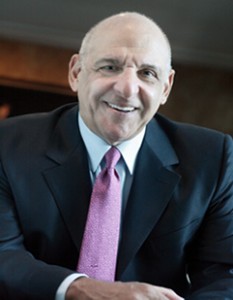Recovery from Aphasia
 Harvey Strosberg has been an inspirational guest speaker in our Master of Health Science Program. Recently, he generously donated his time to speak with our second year students about his experiences recovering from Stroke, and more particularly Aphasia. This opportunity was highly appreciated by all our faculty and more importantly our students. It truly will be one of those invaluable learning moments our students will carry with them long after they graduate.
Harvey Strosberg has been an inspirational guest speaker in our Master of Health Science Program. Recently, he generously donated his time to speak with our second year students about his experiences recovering from Stroke, and more particularly Aphasia. This opportunity was highly appreciated by all our faculty and more importantly our students. It truly will be one of those invaluable learning moments our students will carry with them long after they graduate.
In honour of Speech and Hearing Month, Mr Strosberg and his family have agreed to share their story…
On October 1, 2010 I had a stroke. It happened while I was on a conference call at 8:30 in the morning. My wife, Cathy, quickly brought me to hospital. Later, I was told that speed saves the brain. I remember being in the operating room. I remember that my left side was paralized. I remember that I couldn’t speak. Several days passed before I awoke and I soon realized that I had a serious problem. I couldn’t say the word for bottle, glass, computer, or TV. I didn’t know my own telephone number. I was a 66-year-old trial lawyer but I couldn’t speak. In the blink of a stroke, I passed into a different realm. I truly went from powerful to powerless. The diagnosis was Aphasia.
I had to look it up in my trusty dictionary. Aphasia means an inability to understand or produce speech due to brain damage. After three weeks in Toronto Western, I was transferred to the Toronto Rehabilitation Institute and I stayed as an inpatient for four weeks where I received speech therapy. When I was discharged, I still couldn’t speak and depression set in. Words began to come back slowly, without sentences. Finally, on New Year’s Eve, I made a promise to myself that I would speak again. I hired Lynn Ellwood (Coordinator of Clinical Education, U of T) to give me private speech therapy sessions. I was often in Florida or Windsor while she was in Toronto and I had my therapy two to three times a week, often via Skype. My friend, a judge, still drills me about the law every Sunday by Skype.
Now it’s two years later. Last Monday, I was in court where I argued motion and won. I realize, however, that the road to full recovery is never-ending. My stroke has required to me to make fundamental changes in my life. I had to change my diet, increase my physical exercise. I now take yoga and meditate. I still make mistakes when I talk. I confuse names and sometimes I confuse the words he with she. I have two wonderful five-year-old grandchildren. They talk to me slowly and I talk to them slowly. They make me confortable and they reinforce my understanding about the process of learning language. I can see them formulating sentences and I do the same thing and it’s very reassuring.
Question: Is there a particular aspect of language that is still difficult for you?
Mr. Strosberg: Verbs are still difficult. I used to follow people from a distance and describe to myself what they were doing. I would say to myself “this woman … dog … she’s walking with a dog”. It was a very difficult exercise and sometimes I just couldn’t get the verb out.
Question: In terms of your recovery, was there anything specific that your family did to help you in relearning to talk?
Mr. Strosberg: My family encouraged me all the time and they were very important. Everybody wants to help.But you have to train your family members to help you in the right way. It was important for me to ask them to wait patiently when I tried to find a word. I tell them that if I want help, I’ll ask for it.
Question: What is it like to be back at work?
Mr. Strosberg: I realized if I was talking slowly I would be more persuasive in court. I mispronounce words from time to time, but so be it. The idea is more important than the delivery. If a judge tells me that I have three minutes to summarize, I ask the judge for five minutes because I speak slowly.